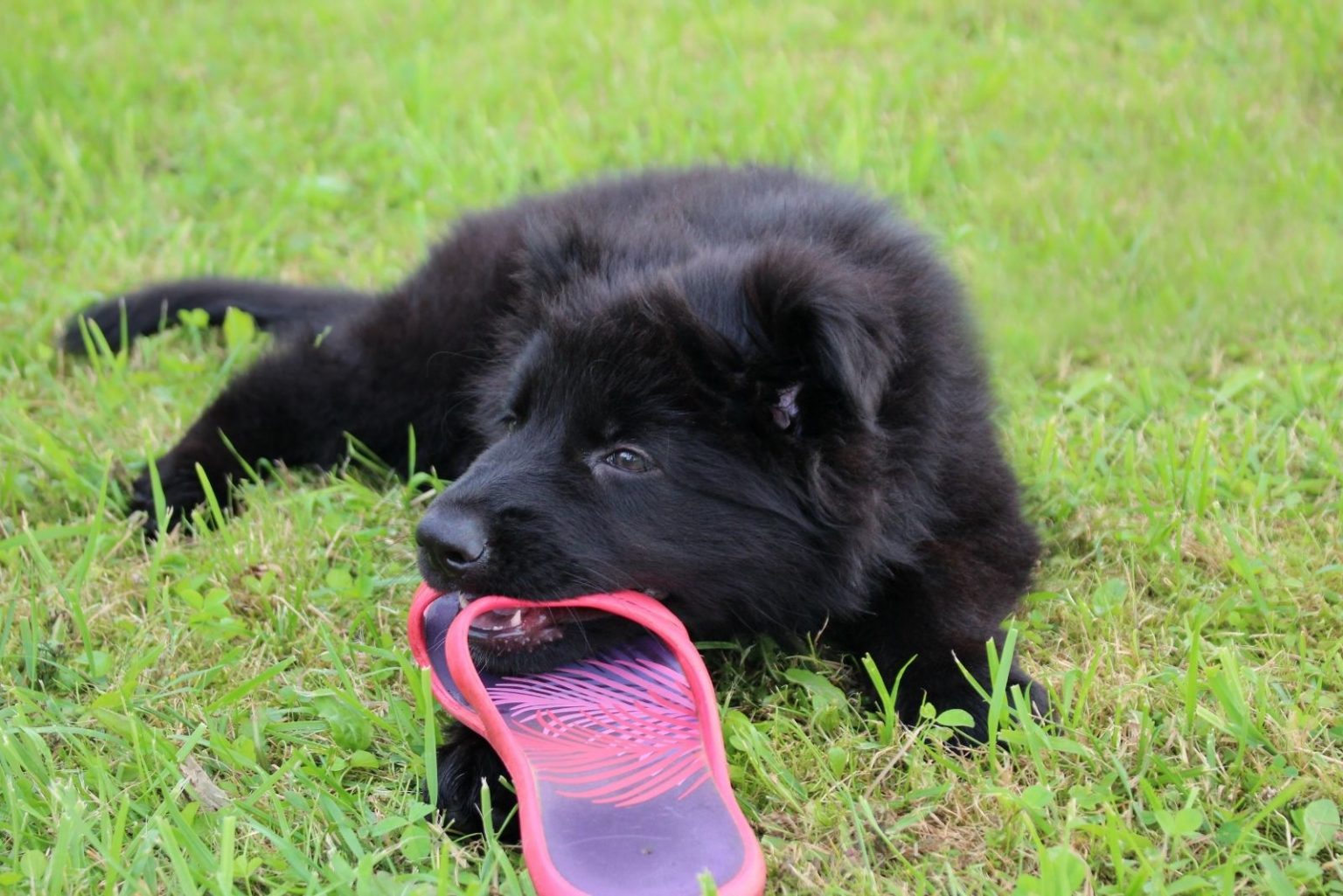After the puppy teeth have erupted about six to eight weeks, German Shepherd puppies will begin the teething process.
When this happens, you may notice your dog chewing on things more often than usual and drooling more as well.
When the adult teeth begin to erupt, there may be less severe teething.
When do German Shepherds stop teething? When their adult teeth have grown in completely, at around 6 months old.
Knowing what stage of canine dentition your pup is in can help you better understand how to take care of them through this tough time!
When Do German Shepherds Stop Teething?
Contents
German shepherds will start teething when they are about three months old.
They will continue to have their baby teeth for about another four or five months, but it’s important that you brush your dog’s teeth during this time period if he does not already know how to do so on his own.
When he is between four and six months old, his baby teeth will fall out.
When they are replaced with permanent adult teeth, you can use a special dog toothpaste to clean them.
German Shepherd Puppy Teething Stages
The teething stages for German Shepherds puppies are pretty similar to the teething stages for other puppies.
German Shepherd puppies have their initial set of teeth, known as deciduous teeth, when they are just a few weeks old.
At around six to eight weeks of age, they will begin to lose their baby teeth as German Shepherd pups.
This makes room for the adult teeth to grow in.
The teething phase should be over by the time your dog is six months old. Adult teeth are expected to have erupted at this point in your dog’s life (42 in total).
Secondary teething may still occur after the primary teething phase has ended, although it is less intense and less painful.
Also Read: German Shepherd Puppy Teething: Ages,Stages, And Guides
How to Help a Teething German Shepherd
There are a number of ways that you can help your German shepherd puppy to cope with teething.
Herbal plants like chamomile may help to alleviate your puppy’s pain.
Try offering your dog some chamomile tea, and if he doesn’t like it, add some broth to the tea.
You can also give your puppy chew treats – there are a number of safe, high-quality ones that act as both a toy and food.
Another way to help teething puppies is to make ice cubes from vegetable broth, beef, or chicken.
Frozen baby carrots also work well if you don’t have broth on hand.
Chewing on these carrots will soothe your puppy’s gums while providing some extra nutrients.
Rawhide is another inexpensive and popular option, but should be given in moderation as over-consumption can lead to health problems – especially if you are using rawhides that contain chemicals or preservatives.
Rawhide is another popular, and less expensive, option.
Just be sure to supervise your puppy when he’s chewing on it, as rawhide can be a choking hazard.
If you have any questions about how to help your German shepherd through teething, don’t hesitate to contact your veterinarian.
They will be able to provide additional guidance to ensure that your German shepherd remains healthy and happy.
Conclusion
In conclusion, your German Shepherd should be through his teething phase by around 16 weeks.
When you dog starts chewing everything in sight, try giving him some chew toys and treats to help sooth the pain of new teeth coming in.
Also keep an eye out for any signs of infection – if your pup’s gums become swollen or he starts vomiting frequently after chewing, take him to the vet as soon as possible.
Don’t forget that teething is a very important process for your dog – it will help his adult teeth grow in properly and avoid future issues!




